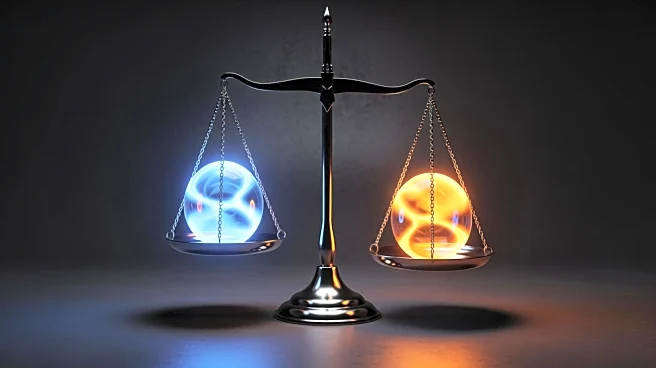What's Happening?
Jeremy Renner is embroiled in a legal dispute over the use of his voice in an AI-driven film. The controversy began when a cease-and-desist letter was issued, warning of 'multi-millions' in liability if
Renner's voice or likeness is reused without proper consent. The dispute centers around a talent release form signed on September 15, which Renner's team claims does not authorize the use of his voice in the AI project announced in October. The film, pitched as supporting charity, has sparked debate over consent and AI rights, with Renner's lawyer, Marty Singer, emphasizing the potential legal consequences.
Why It's Important?
This legal battle highlights the growing tension between traditional celebrity rights and emerging AI technologies. As AI becomes more prevalent in media production, questions about consent and intellectual property rights are increasingly significant. The outcome of this case could set a precedent for how voice and likeness rights are managed in AI projects, impacting both actors and filmmakers. The stakes are high, as the resolution may influence future contracts and the way studios handle recorded interviews and AI-generated content.
What's Next?
The legal dispute is expected to prompt changes in how talent releases are drafted, with a focus on securing explicit consent for AI use. Studios may need to revise their practices for storing and licensing recorded interviews to prevent similar conflicts. Actors might demand more stringent protections in their contracts, ensuring their rights are safeguarded against unauthorized AI adaptations. The case could lead to new industry standards for consent and intellectual property in the context of AI technology.
Beyond the Headlines
The ethical implications of AI in media are profound, as the technology challenges traditional notions of creativity and ownership. This case underscores the need for clear guidelines and ethical considerations in the use of AI, particularly in preserving the integrity of an individual's voice and likeness. The legal clash may also influence public perception of AI, shaping how audiences view AI-generated content and its impact on the entertainment industry.










